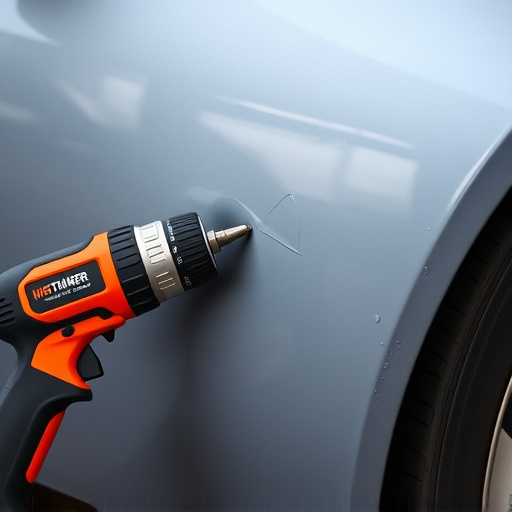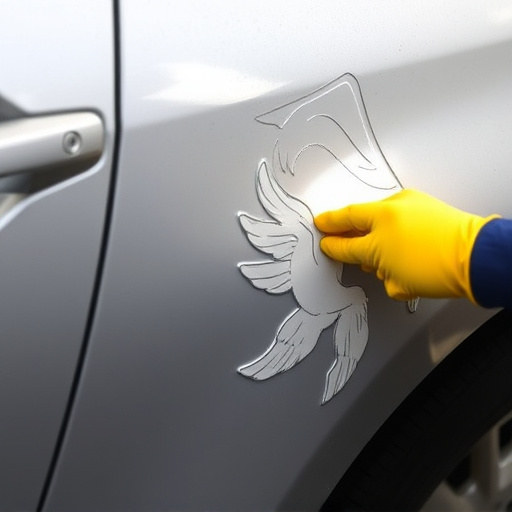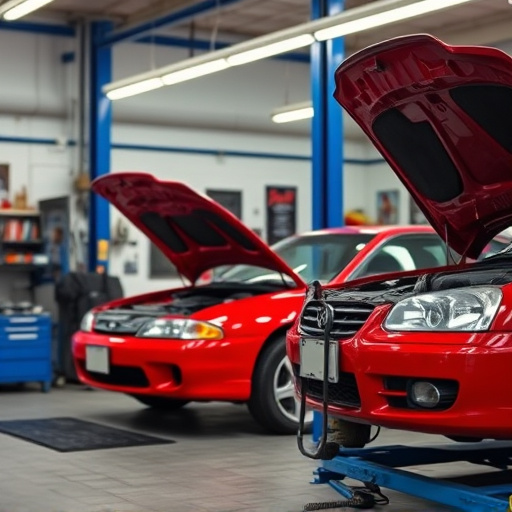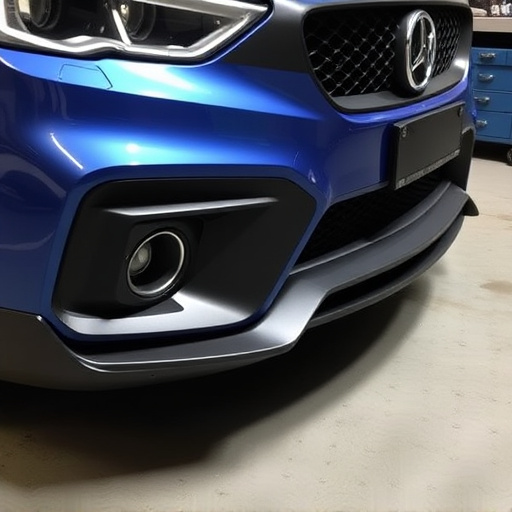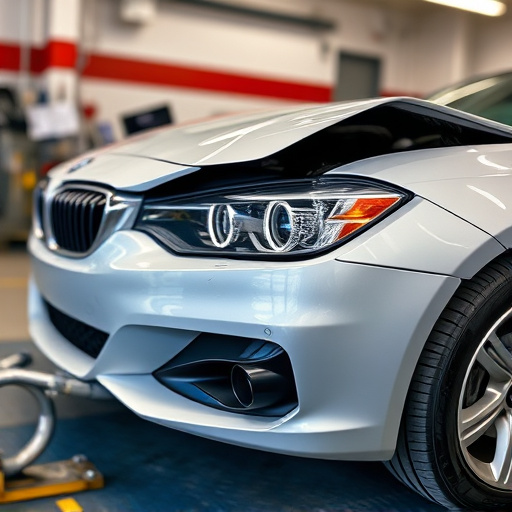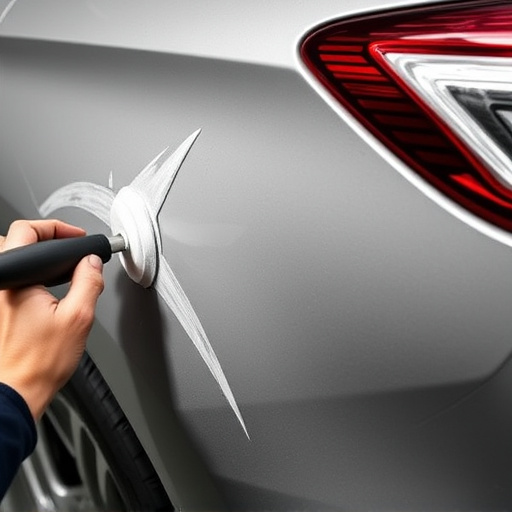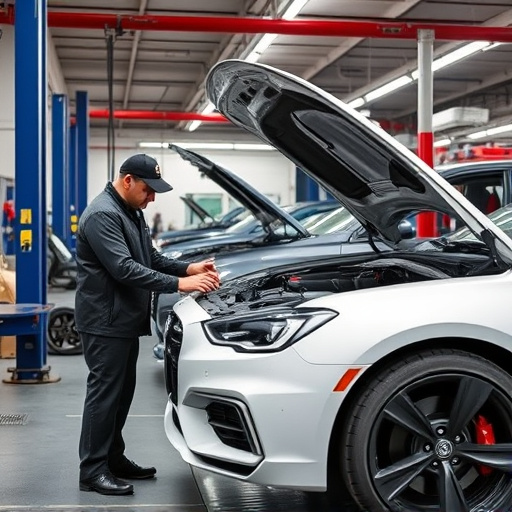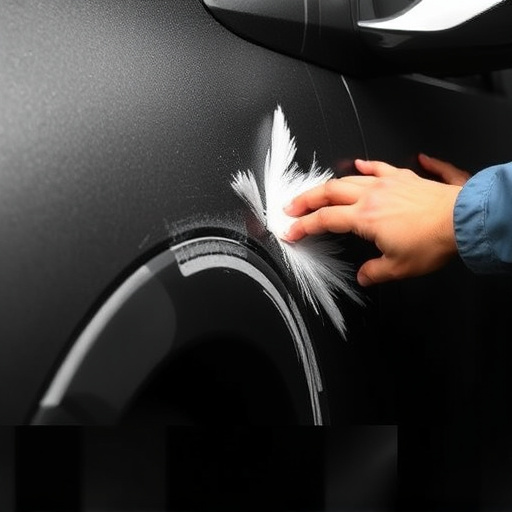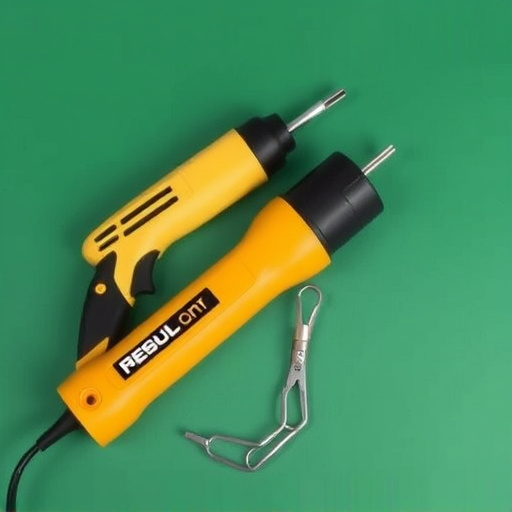Inaccurate accident repair estimates harm both repair shops and customers, leading to mistrust, reputation damage, legal issues, and inefficient repairs. Precise vehicle damage assessment is crucial for accurate estimating, improving communication, minimizing disputes, and ensuring transparent costs. Detailed inspections benefit all parties, preventing costly errors, promoting fairness, enhancing customer satisfaction, and boosting business efficiency in competitive markets.
In the intricate world of auto collision repair, accurate accident repair estimates are paramount. An estimated 25% of claims contain errors, often stemming from inadequate or superficial inspections. This article delves into the profound impact of inaccurate estimates on all stakeholders and highlights the pivotal role of detailed inspection in achieving precise repairs. We explore how meticulous assessment enhances accuracy, ultimately fostering trust, expediting processes, and ensuring superior customer satisfaction.
- Understanding the Impact of Inaccurate Estimates
- The Role of Detailed Inspection in Repair Process
- Enhancing Accuracy: Benefits for All Stakeholders
Understanding the Impact of Inaccurate Estimates

Inaccurate accident repair estimates can have far-reaching consequences for both repair shops and customers alike. When an estimate is off by a considerable margin, it leads to mistrust between the shop and the client. This can damage reputations, especially in a competitive market where word of mouth spreads quickly. In addition, clients may feel misled, leading to potential legal issues if the discrepancy causes financial hardship.
Moreover, inaccurate estimates hinder the efficient management of repair processes. If a shop underestimates the cost, they might struggle to source necessary parts or allocate sufficient labor, resulting in delays and dissatisfied customers. Conversely, overestimating expenses can create an unwanted financial burden for clients, who may seek alternatives due to perceived excessive charges. Therefore, understanding the intricacies of vehicle damage and accurately assessing repair needs is paramount in ensuring customer satisfaction and maintaining a successful car restoration business, whether it’s handling modern repairs or classic car restoration tasks, including dent repair.
The Role of Detailed Inspection in Repair Process
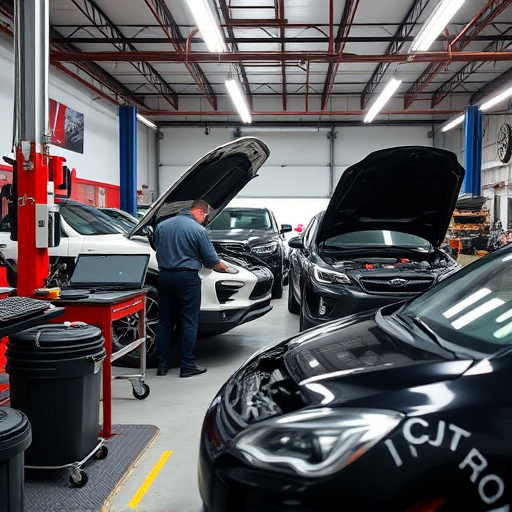
A detailed inspection is the cornerstone of any accurate accident repair estimate. It involves a meticulous examination of every aspect of a damaged vehicle, from exterior and interior conditions to mechanical and cosmetic issues. This comprehensive process ensures that no hidden problems go undetected, which could lead to costly surprises later on. By thoroughly assessing the extent of damage, repair technicians can provide precise estimates for various services like frame straightening, tire services, and even complete vehicle restoration.
This detailed inspection not only aids in generating accurate accident repair estimates but also facilitates effective communication between repair facilities, insurance providers, and policyholders. It enables everyone involved to have a clear understanding of the work required, timelines, and associated costs. Moreover, it helps prevent disputes by establishing a solid foundation for expectations and agreement on repairs needed to get the vehicle back to its pre-accident condition.
Enhancing Accuracy: Benefits for All Stakeholders
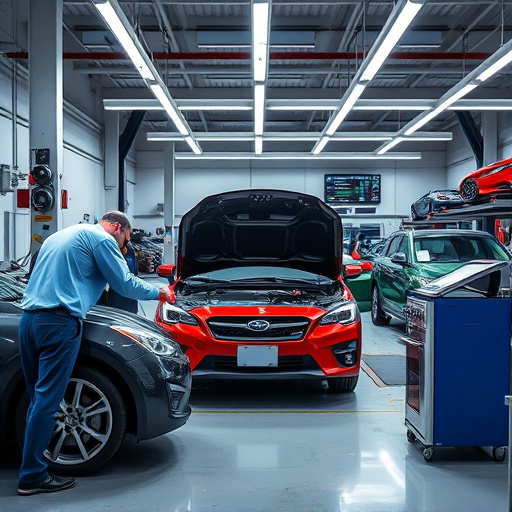
Detailed inspections play a pivotal role in enhancing the accuracy of accident repair estimates, benefiting all stakeholders involved in the process. When assessing a vehicle, whether it’s from a simple fender bender or significant hail damage repair, thorough inspection ensures that every aspect of the damage is identified and accounted for. This meticulous approach prevents costly mistakes and surprises during the repair process, ensuring clients receive fair and precise estimates.
For repair shops offering fleet repair services, accurate estimating is crucial for maintaining client satisfaction and managing business operations effectively. It enables them to provide transparent pricing, allocate resources efficiently, and meet deadlines. Moreover, detailed inspection practices contribute to higher customer retention rates, as satisfied clients appreciate the transparency and quality of service rendered, fostering a positive reputation for the repair shop in the competitive vehicle collision repair market.
Accurate accident repair estimates are vital for ensuring a smooth and cost-effective restoration process. By conducting detailed inspections, repair facilities can significantly reduce errors and miscommunications that often lead to costly mistakes. This benefits all stakeholders—from policyholders to insurance companies—by promoting transparency, minimizing financial disputes, and ensuring high-quality repairs. Embracing meticulous inspection practices is not just a best practice; it’s an indispensable step towards reliable accident repair estimates.

